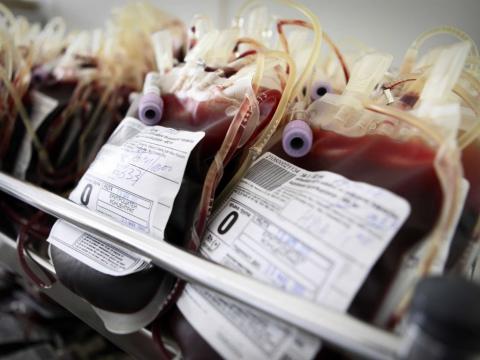By Mohamed Foday Conteh
As Sierra Leone joined other countries in the world to commemorate World Blood Donor Day, on Monday 14 June 2021, Osman Kargbo, the Lab Lead and Technical Head attached to the National Safe Blood Services at the Princess Christian Maternity Hospital (PCMH) has told Politico that only 20 percent of people in Sierra Leone donate blood on their own volition.
Kargbo said that perceived myths, cultural and religious inclinations, poverty, and lack of sufficient blood to donate, have over the years been the problems that have affected the willingness of people to donate blood to those in need.
However, Philip Kamara, National Supervisor at the Connaught Hospital and of the National Safe Blood Services at the Ministry of Health and Sanitation, associated the low blood donation to lack of proper sensitization despite the myths attached to it.
Kamara added that there is always a demand for blood due to the prevalence of malaria, road accident, sickle cell, and lactating mothers in society.
He said that there are several criteria that serve as thresholds for blood donation, such as 12.5 grams deciliter blood level, checking of blood pressure, persons with tattoos that have elapsed over 6 months, non-hypertensive persons and women who are not pregnant.
Muhammad Abubakarr is a student of the College of Medicine and Allied Health Sciences (COMAHS) and also a member of the National Association of Pharmaceutical Students. As one of few blood donors in Sierra Leone, he said that his volition to donate blood especially on World Blood Donor Day was as a result of encouragement by the Students Association.
He said they realized that there is often a scarcity of blood at the blood bank and aware of its importance, they as students initiated the drive as a way of giving back to society.
“This is a humanitarian activity and that is why we don’t invite cameras when we do it,” Abubakarr said. He further called on each and every citizen to at least donate blood once a year.
According to experts, a person can donate blood a maximum of 3-4 times a year depending on the gender of the donor. Males can donate blood 4 times a year and females 3 times a year. Females donate less because they had to go through their monthly circle and thus, lose blood. Blood donors should be between the ages of 18-65 for regular donors and 18-60 years for first-timers.
Amadu Barrie, a medical student and Public Relations Officer of the College of Medicine Muslim Jamaat (COMMUJ), emphasized the significance of blood donation. Barrie said that while members of his organization will be donating blood at Connaught Hospital, the process should be the civic duty of all Sierra Leoneans.
The Government has been rendering its support through the Ministry of Health and Sanitation to assist both Blood Transfusion Centre and National Safe Blood Services with equipment and other necessities. However, the support had not been adequate. Sadly the Italian Association for Solidarity among Young People (AISPO), the only NGO supporting the Centre, has withdrawn its support due to lack of funding from the Italian Government.
Copyright © 2021 Politico Online (16/06/21)








